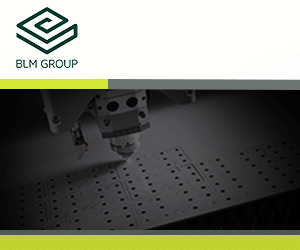THREE FOR ONE
By examining how Mississippi Gulf Coast Community College created a sustainable training program, a three-prong strategy emerges for welding education and job placement as well.
Posted: October 13, 2010
By examining how one community college created a sustainable training program, a three-prong strategy emerges for welding education and job placement as well.
A shortage of skilled welders may exist, but not if Mississippi Gulf Coast Community College (MGCCC; Perkinston, MS) can help it. The college, with eight locations in southern Mississippi, recently partnered with the Mississippi Department of Employment Security (Jackson, MS), the WIN Job Centers (Workforce Investment Network; Jackson, MS) and two community colleges, Pearl River Community College (Poplarville, MS) and Jones County Junior College (Ellisville, MS), to meet the sustained and increasing needs of industry in 18 southeastern counties.
The result was a three-year grant that not only enabled the college to establish a center of excellence in welding, but also to develop stronger workforce partnerships and a sustainable training program. For MGCCC’s center of excellence, the welding equipment of choice was multi-process welders and inverters from Miller Electric Mfg. Co. (Appleton, WI).
PART 1: CUSTOMIZED TRAINING
The impact of the school’s three-year grant, WIRED (Workforce Innovation in Regional Economic Development), funded by the U.S. Department of Labor, is realized by more than just the community colleges and industry partners. Students gain the credentials required by area business and are trained according to their needs. The customized training program, which was developed as part of the WIRED grant, includes more stringent testing guidelines that enable students to possess “stackable”, as well as nationally recognized, credentials that students can achieve prior to completion. The curriculum sequences students through the multiple welding processes in a way that ensures students successfully test according to American Welding Society (AWS; Miami, FL) standards.
The college maintains an excellent rate of placement and never holds a student back. “If a student comes in with experience, we’ll go from there,” says Larry Porter, welding instructor at MGCCC and WIRED master trainer. “We’ll test them to see what skills the students possess and begin building the student’s skill set from that point, thus allowing the student to move into more advanced welding.” The school is in its third year of the WIRED grant, although training actually began in the second year. During the first year and a half, testing guidelines and upgraded labs were implemented to fulfill the grant’s “enter of excellence”purpose in welding. Further, the grant funding allowed the college to upgrade all of the WIRED instructors to CWIs (Certified Welding Inspectors).
To maintain their center of excellence, the school purchased 30 DimensionTM NT 450 multi-process welders. “The performance, arc stability and multi-process capabilities are outstanding on this machine,” says Porter. “We can take each person through all the processes at one station. The student never has to move.” Further, the school has maximized its space with the multi-process machines. “In the past, there were times we couldn’t bring students in at one level because we didn’t have the machines available for the required process training,” says Porter. “We’re normally at full capacity at all of our sites, and we haven’t had any problems with reliability.”
PART 2: WORKFORCE ALLIANCE
While there is no denying the extent of the national economic downturn, the shipbuilding industry on the coast from Florida to Texas, remains strong. The college stays in close contact with the shipyards and will train students to meet the industry’s needs. Still, it didn’t happen without initiative from both the school and area shipyards. Mutual needs are met in large part as a result of the partners’ desire to come together on a regular basis.
“The college District Workforce Council meets quarterly to discuss training provided, whether in our welding, pipefitting or machine shops,” says Mark Landry, workforce director at MGCCC and WIRED project manager. “This process ensures up-to-date training as well as valid and recognized certifications.” One local employer, Trinity Yachts, reports that 50 percent of welding new hires have come from MGCCC. The partnership is critical. “I’m also on the District Workforce Council,” says Mike Leleux, human resources director for recruiting and training, Trinity Yachts. “The need is there. We meet to discuss the issues that exist throughout the region. It’s a win-win situation for companies in need of employees and workforce training.”














